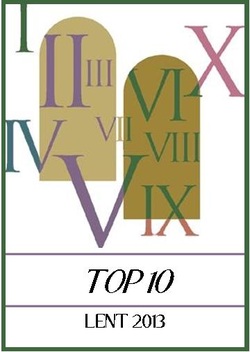|
I was lying in a hospital bed in the emergency room St. Paul, Minnesota talking fervently to God. Why would God allow this to happen to me? When would God deliver me from the excruciating pain I was suffering? After being poked and prodded, hooked up to an IV, passed through a CT scanner, and answering myriad questions about my personal habits, a diagnosis was reached. I had pancreatitis caused by gallstones. My gallbladder would have to come out once the inflammation to my pancreas went down. Great! A thousand miles from home and my family, and I had to suffer a major medical emergency in the company of strangers.
I asked God, “Lord, what I had done to deserve this?” Pancreatitis can be caused by excessive drinking, by scorpion stings, and by genetic factors. I have lived a fairly clean life. I rarely drink alcohol. Surely the two margaritas I enjoyed while watching the NFC and AFC championship games that Sunday hadn’t caused my affliction. I have never even seen a live scorpion in the wild. No one in my family has ever had pancreatitis. What could it have been? There is a saying amongst doctors that they can tell who is going to have problems with their gallbladder just by looking at them. Three things are a dead giveaway. People who are fair, forty, and fat. I fit the bill for all three. I am so pasty white that I glow in the dark. I was only two weeks away from my 40th birthday. My weight had been creeping up for several years. I refused to look at photos of myself, or would try to hide behind other people when the picture was taken. I only wanted to look at myself in “skinny” mirrors so that I wouldn’t feel bad about myself. I would promise myself that I would quit my fast food habit tomorrow, or the day after that. I would rather by shirts and pants a size larger than admit than admit that my burgeoning waistline was a growing problem. And now I was suffering the natural consequences of neglecting to take care of myself. I thought I could just ignore the problem, put it off for another time. And I was forced to face my health head on. My gallbladder made sure of that. What does all of this have to do with Lent and our study of the 10 Commandments? Simply put, the 10 Commandments act like a mirror. They provide us a true glimpse of ourselves as God sees us. There is no hiding behind anyone so that our sin looks smaller. There is no “skinny” mirror that we can look into to make ourselves feel better about what we have done. There is only honest reflection about where we fall short of living a Godly life, and about how many times we have fed ourselves spiritual fast food, giving ourselves empty promises to be better or do better tomorrow. I feel like God was giving me a health intervention by allowing my gallbladder and pancreas to behave in the way they did. Had I not suffered the pancreatitis attack, I probably would have died from high blood pressure or hardening of the arteries from all of the garbage I was eating. I still have a long way to go to get healthy, and I will never be perfect in following the doctor’s orders, but I am certainly going to try! I have to tell you that I like what I see in the mirror more and more as the weight is starting to come off. No one can follow the Ten Commandments perfectly, that’s why God had to stage an intervention for the whole world. God sent Jesus to fulfill the law, because we could not. We were going to die from our terminal diagnosis of sin, but Jesus took our place on the cross, and we have been given new life and new hope in Jesus’ resurrection on Easter morning. We still can’t follow the Ten Commandments perfectly, but we can try! Then we can feel a little better as we look into the mirror of the law. We will like what we see a little better, and we don’t have to be afraid because we know that we have been saved by the Grace of God through Jesus Christ. Matt Byrd
0 Comments
 25 Just then a lawyer stood up to test Jesus. “Teacher,” he said, “what must I do to inherit eternal life?” 26He said to him, “What is written in the law? What do you read there?” 27He answered, “You shall love the Lord your God with all your heart, and with all your soul, and with all your strength, and with all your mind; and your neighbor as yourself.” 28And he said to him, “You have given the right answer; do this, and you will live.” Luke, chapter 10. How do we make sense of the Commandments, if we know we can’t treat them as a simple ten-point To-Do list? Jesus’ conversation [above] with the lawyer (which prefaces the parable we’ve come to know as “The Good Samaritan”), gives us an important clue: If you want to condense the law down to its most essential elements, remember this: Love the Lord your God, and love your neighbor as yourself. The fact that this devout Jew (“a [scripture] lawyer”), who specialized in the reading of the Torah, offered this summary so readily to Jesus, gives us a clue about its importance in the Jewish and Christian traditions. A faithful life includes both our relationship to God and to the world we live in. Jesus communicates this message in Matthew, Mark, and Luke’s Gospels; which further emphasizes how much the love of God and love of neighbor are at the center of our Christian life. One way to visualize this two-pronged relationship to God and neighbor is in the way the Commandments are displayed on the two tablets that Moses carried down the mountain: On the first tablet are Commandments I through III, on the second are Commandments IV through X. Commandments 1, 2, and 3 are about loving God; Commandments 4 through 10 are about loving neighbor. Even Saint Augustine of Hippo, a 4th-century bishop and notable sinner-saint in his own right, knew this formula when he wrote about Christian ethics in his Confessions: “An evil-living person transgresses your Decalogue of three commands with our duty to you, and seven with our duty to our fellow human beings” [emphasis mine]. Maybe ultimately the question this idea poses is: Why bother to condense the 10 Commandments down to this two-part calling? Well, a first response might be if you know the two, you’ll remember the 10 better. If you remember that God created you to love God and your neighbor, you can then unpack what that looks like by giving the Top Ten their proper attention. Thinking of the Commandments in terms of the two tablets, also invites you to think of the Ten Commandments more as a description, more than a prescription—the Commandments are finally about loving God and neighbor well. But maybe the most important reason to think about the commandments in these terms is because love of God and love of neighbor is what Jesus’ cross embodies. Jesus was obedient to God even to the point of death on the cross (love of God), he became sin who knew no sin, in order to love us back to God (love of neighbor). Ultimately, this two-pronged approach to the Commandments leads us back to the truth that truly saves us: Jesus inexhaustibly loves God and loves us. And, with that gospel news as our starting point, we are empowered to love God and love each other. Thanks be to God.  The Old Self Wrestling with the New If you want to know what the Christian life is about, read the church’s baptismal liturgy (from Romans 6): In Baptism, each of us is joined to Christ’s death and resurrection; from that time forward we live under God’s public promise of forgiveness, life, and salvation. God says, “You are a new person born in the waters of Baptim, sustained by my promises.” “Through these promises,” God says,”you are alright with me; you don’t have to do anything to fix our relationship. I’ve taken care of that already in Christ.” But there’s a hitch: The old self in us (see Romans 5-7) is determined to get a second hearing after God has spoken. So the old self lingers at the edges of our heart questioning whether faith in Christ is enough. The voice of that old self is distinct, saying things like, “Listen, I can handle this on my own.” Or, “Okay, so I don’t have to do anything to please you, God. But you don’t really mean ‘nothing,’ do you?” The old self doesn’t trust that God’s promises alone can effect the change in us that God desires. So the old self pokes and prods at God’s commandments and promises, saying things like, “Sure you are the Lord my God, but I still have to make sure I have no other gods. See, I told you I had something to do.” And the old self takes jabs at the new self–raised up in the waters of Baptism: “Don’t just sit there trusting that God has fixed the problem between you and him. Prove your faith to God by your actions.” The old self wants you to believe that God’s promises are good, but you’d better do your part too. The new self, on the other hand, trusts that God will fulfill God’s promises. And, just as Christ told his disciples that he would rise from death–and he did, so we can trust Christ’s promises that we will also be raised from death. We don’t have to–in fact, we can’t–do anything to receive God’s salvation. It is pure gift. And what God wants us to do is simply trust that he’s taken care of things. Over the weeks of Lent, as we listen to each of the Commandments, you are likely to find a wrestling match being fought in your conscience–between the old you and the new you. The old you will use words like “should,” “ought,” and “must” to motivate you to action. The old you will want you to believe that the Commandments are the To-Do list that you not only should, but must complete for a good relationship with God. But the new you–the you whom God is creating through Christ and his Spirit–will be offering a different, faithful approach to the Commandments. The new you will ask, “What can I do, now that I don’t have to do anything to have this relationship with God?” And, gradually, as you continue to hear Christ’s promises of forgiveness and new life with God, the voice of that new self will grow stronger, and the voice of that relentless old self will fade. |
Rev. Lori A. Cornell
Calvary's Pastor Jake Schumacher
Intern Pastor Archives
March 2017
Categories
All
|
Location |
CONTACT UsCalvary Lutheran Church
2415 S. 320th Street, Federal Way, WA 98003 (253) 839-0344 phone (253) 839-0345 fax [email protected] Office Hours: Monday - Wednesday & Friday 11 a.m. - 4 p.m. |


 RSS Feed
RSS Feed
